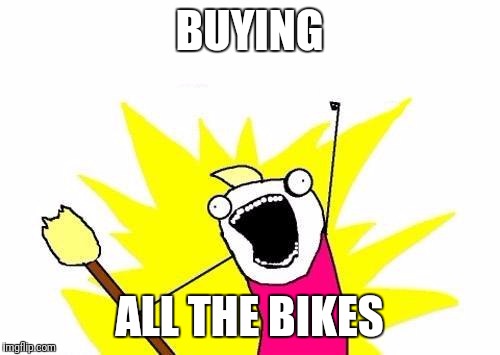Do you ride them on the pavement, or on the roads?
Legally, in Germany, since Kickbikes are not bicycles they count as toys (like bobby cars or inline skates), so you'd have to use the pavement. However, there is also a law that if you carry a bulky object, you have to use the road, so that you don't block the pavement. Now it's up to interpretation if a Kickbike is a "bulky object".
Ironically, what you are clearly not allowed to use is the bikepath, because it's exclusively for bicycles. (except for those shared bike/footpathes).
If these are faster then they might run okay on some roads.
A Kickbike driver in another forum once told me, that on long distances a trained Kickbike rider reaches about 2/3 of the average speed of a trained cyclist.
If you look for videos of Kickbike drivers (especially in races) you'll see, that they have a quite sophisticated method of kicking, which leads to quite high speeds. Some racers even mount aerobars on their handlebars.
Also, do they have brakes?
Afaik, they all have front brakes, while rear brakes are optional and the more common the more weight your kickbike has on the rear.
but personally since learning to use my front brakes, I only ever use my rear brakes to give my front ones a rest, or if I'm indicating right on a downhill.
Front brakes are clearly the more important ones, but rear brakes are important too, mainly for brake balance - especially if you're mountainbiking on trails with sharp corners or if you're riding on slippery ground where your front wheel would be blocked by the brake before the rear wheel lifts off.
So you should train to use both together.



